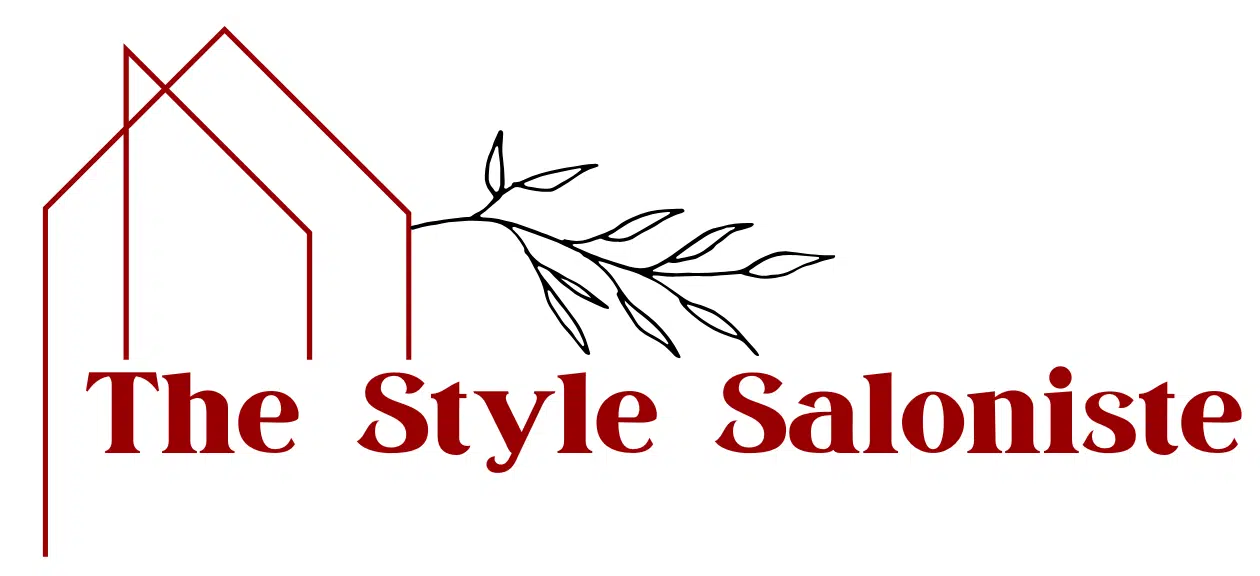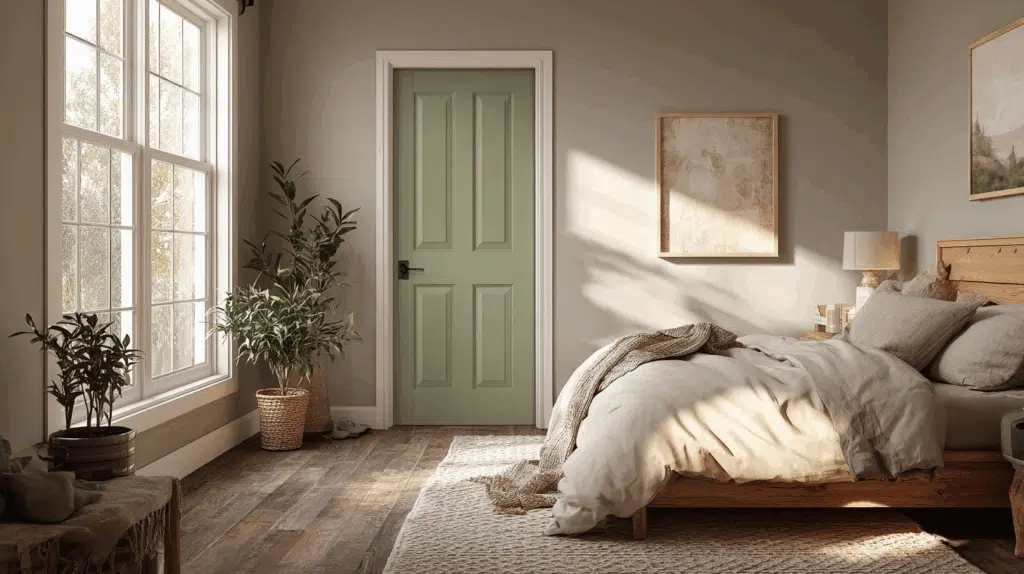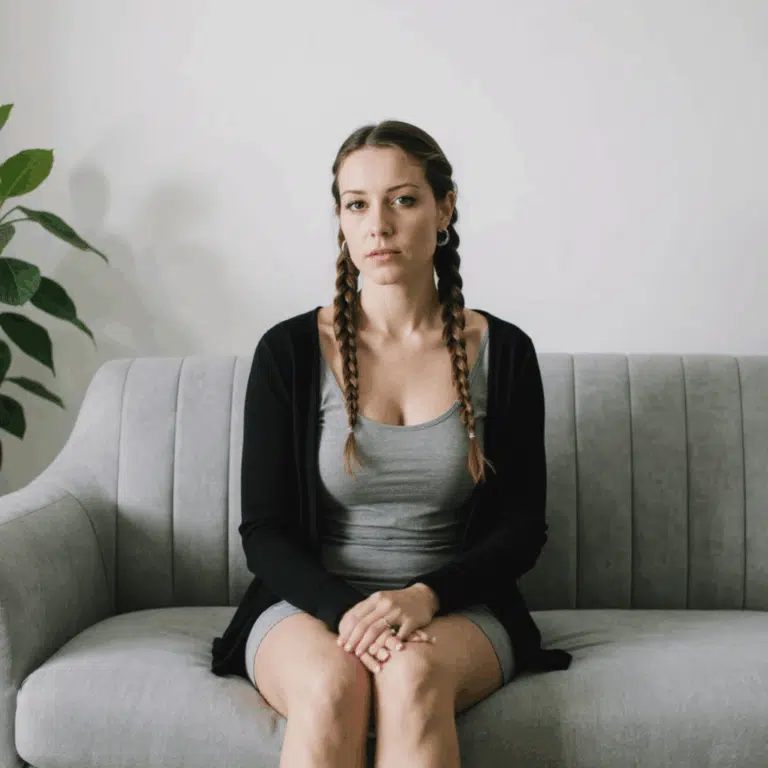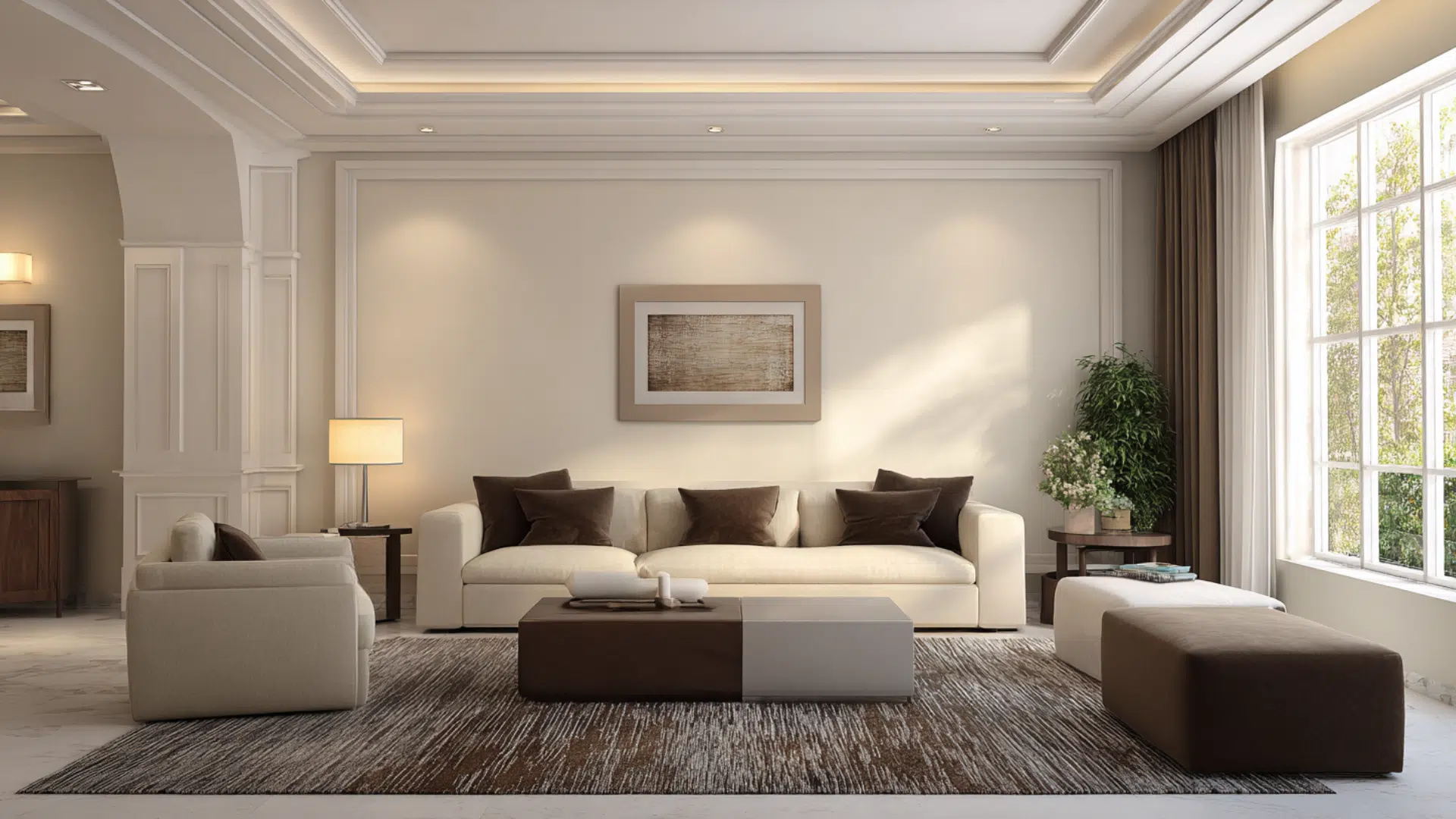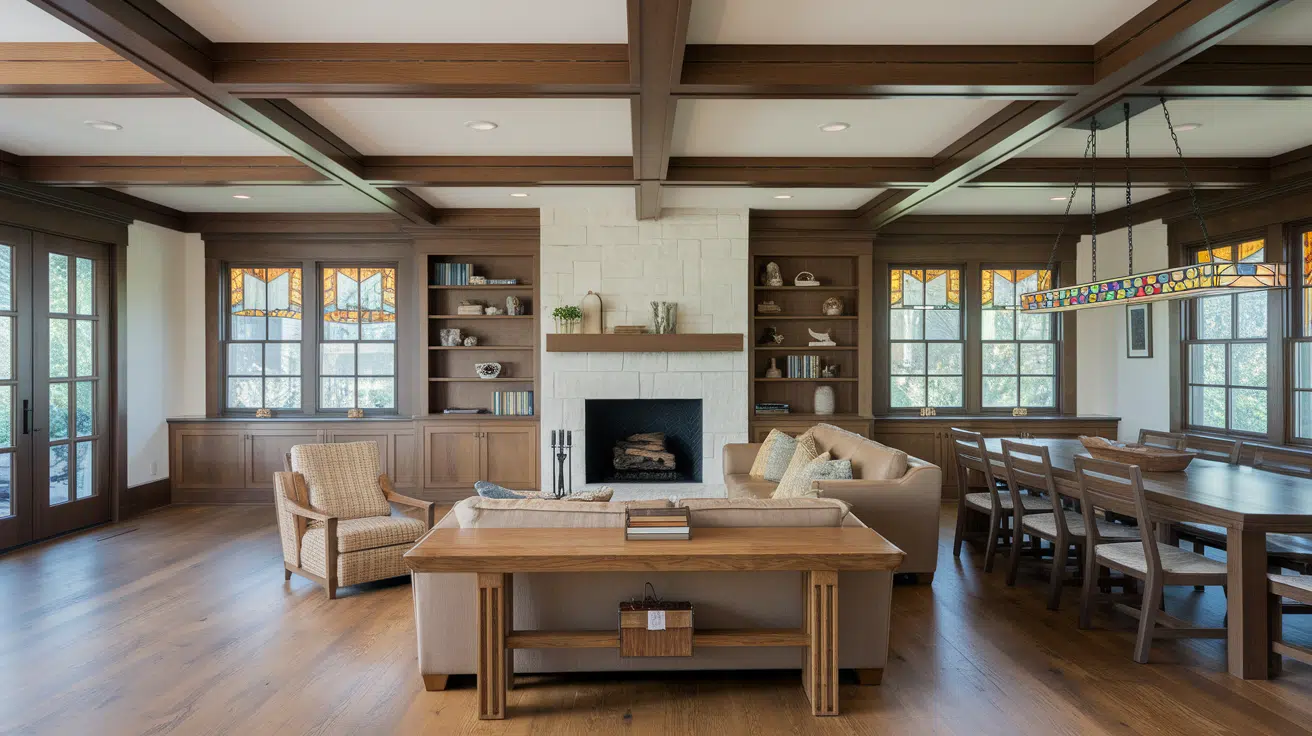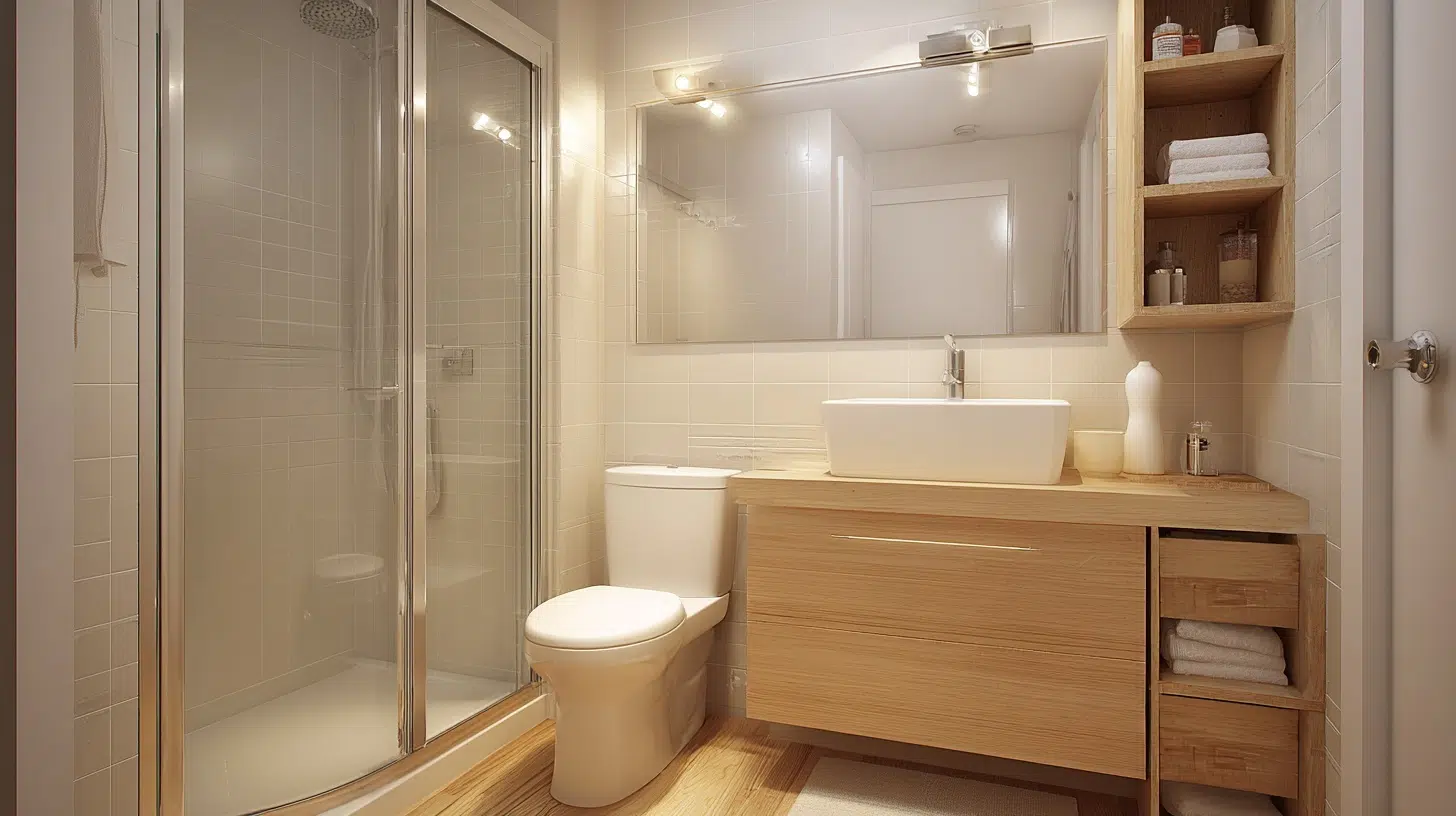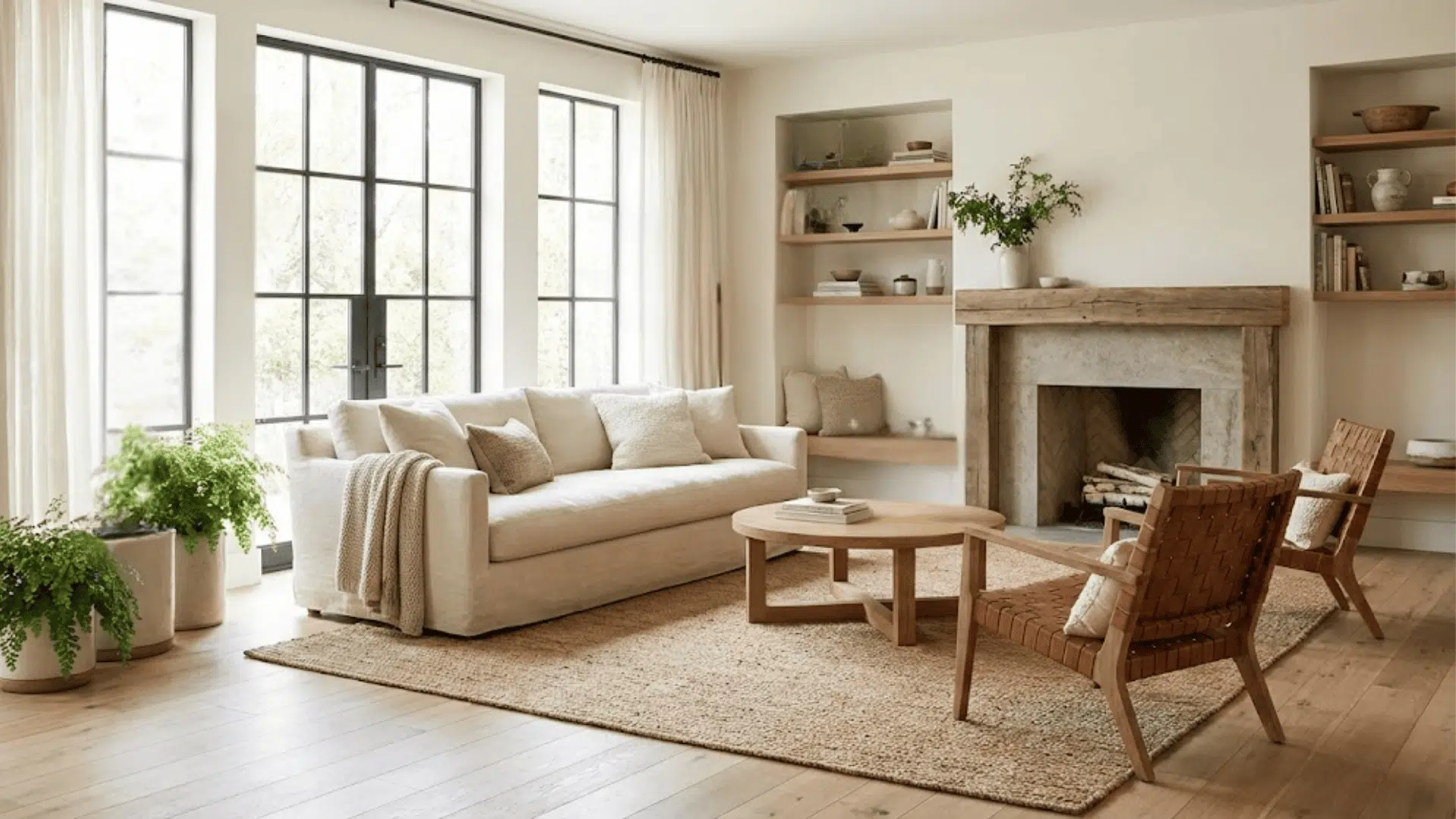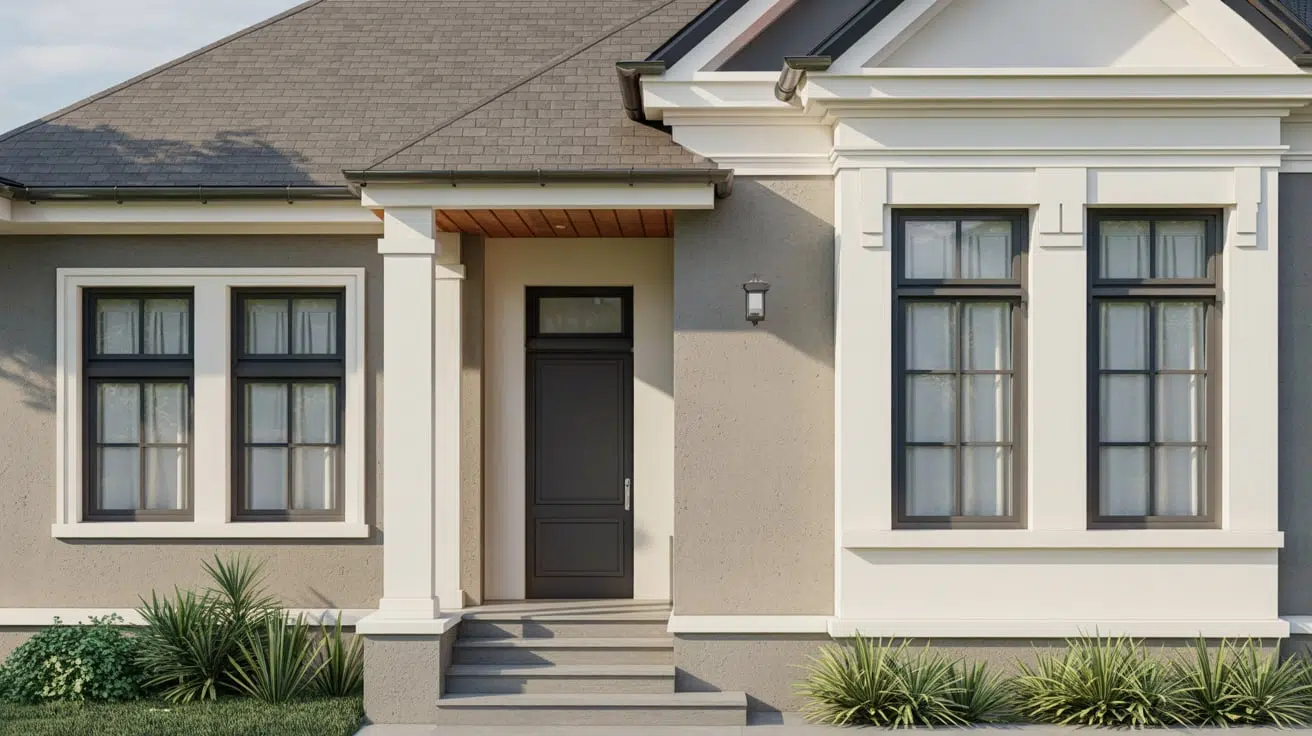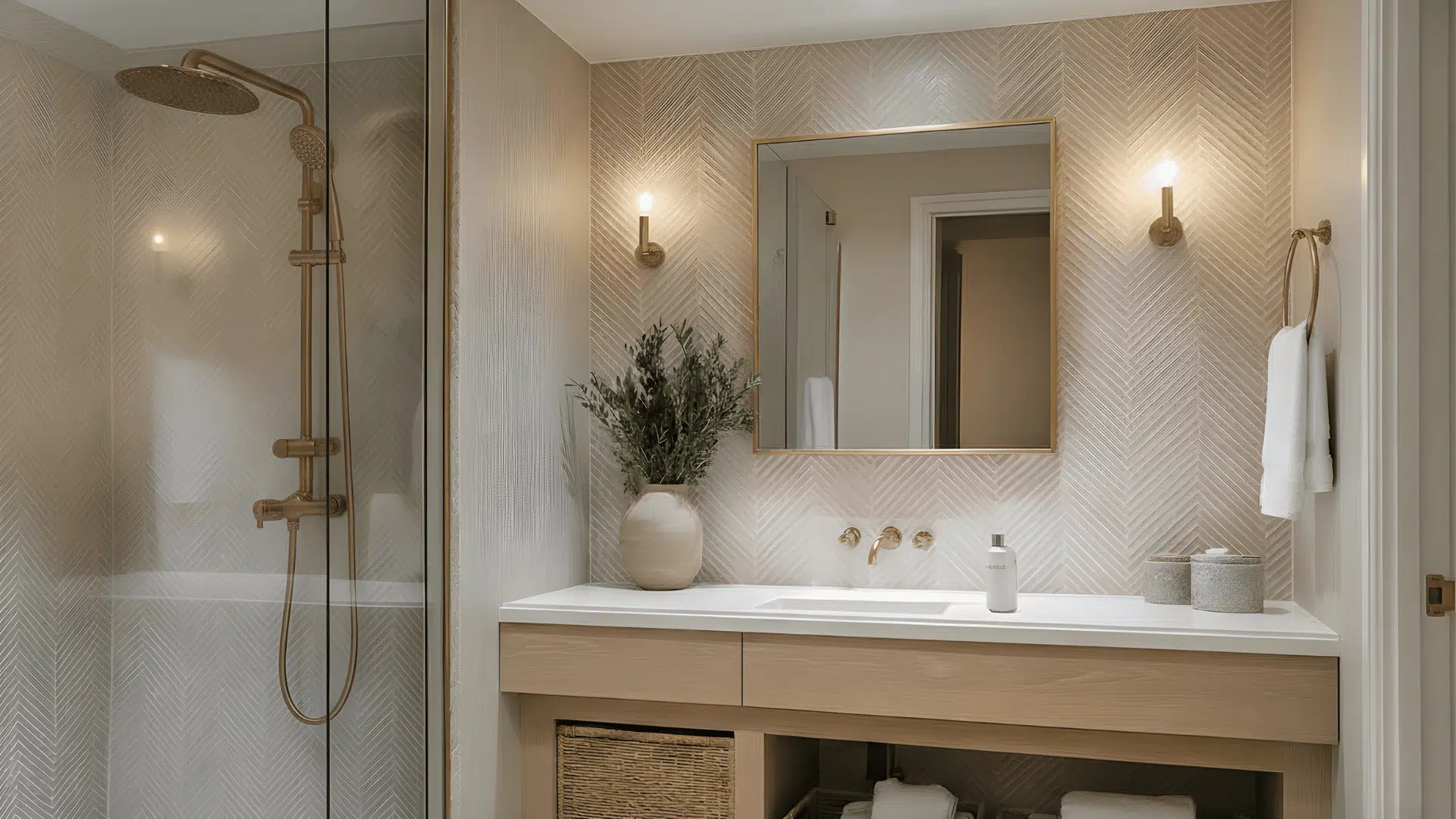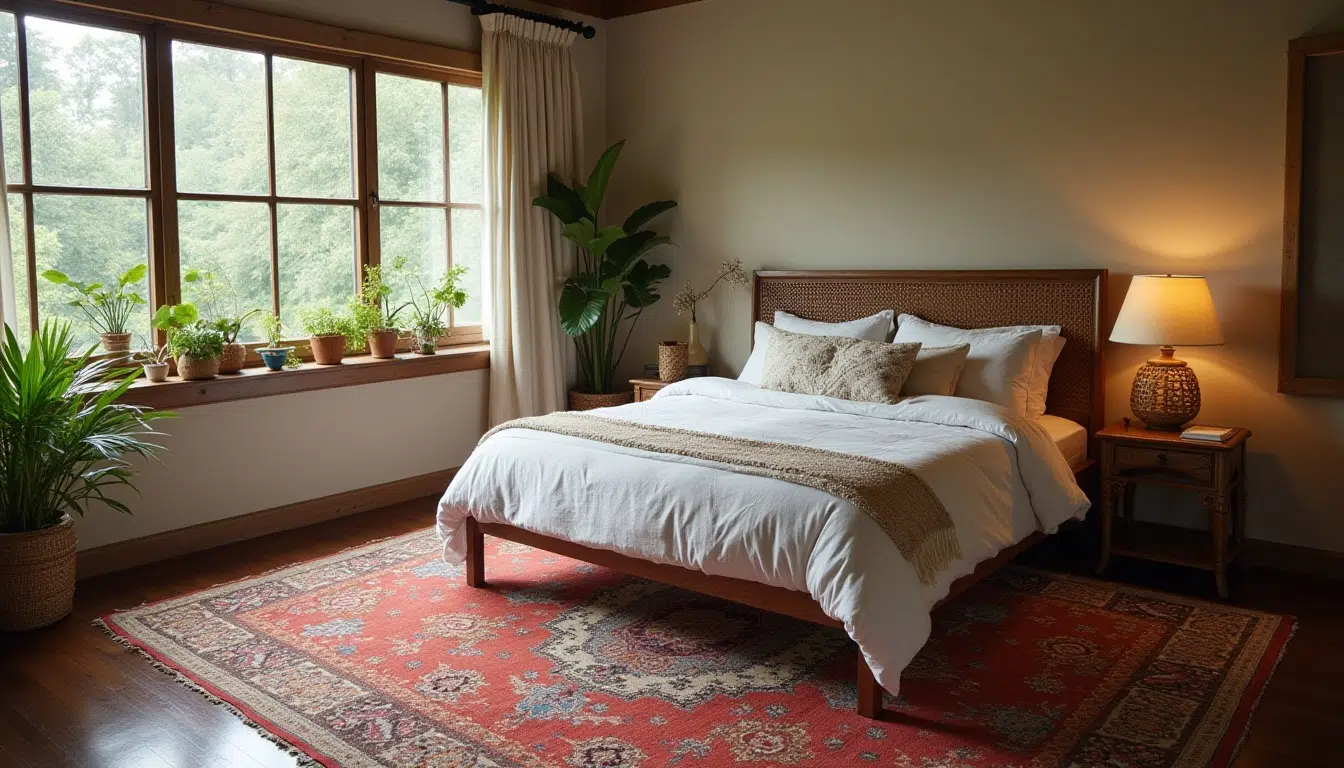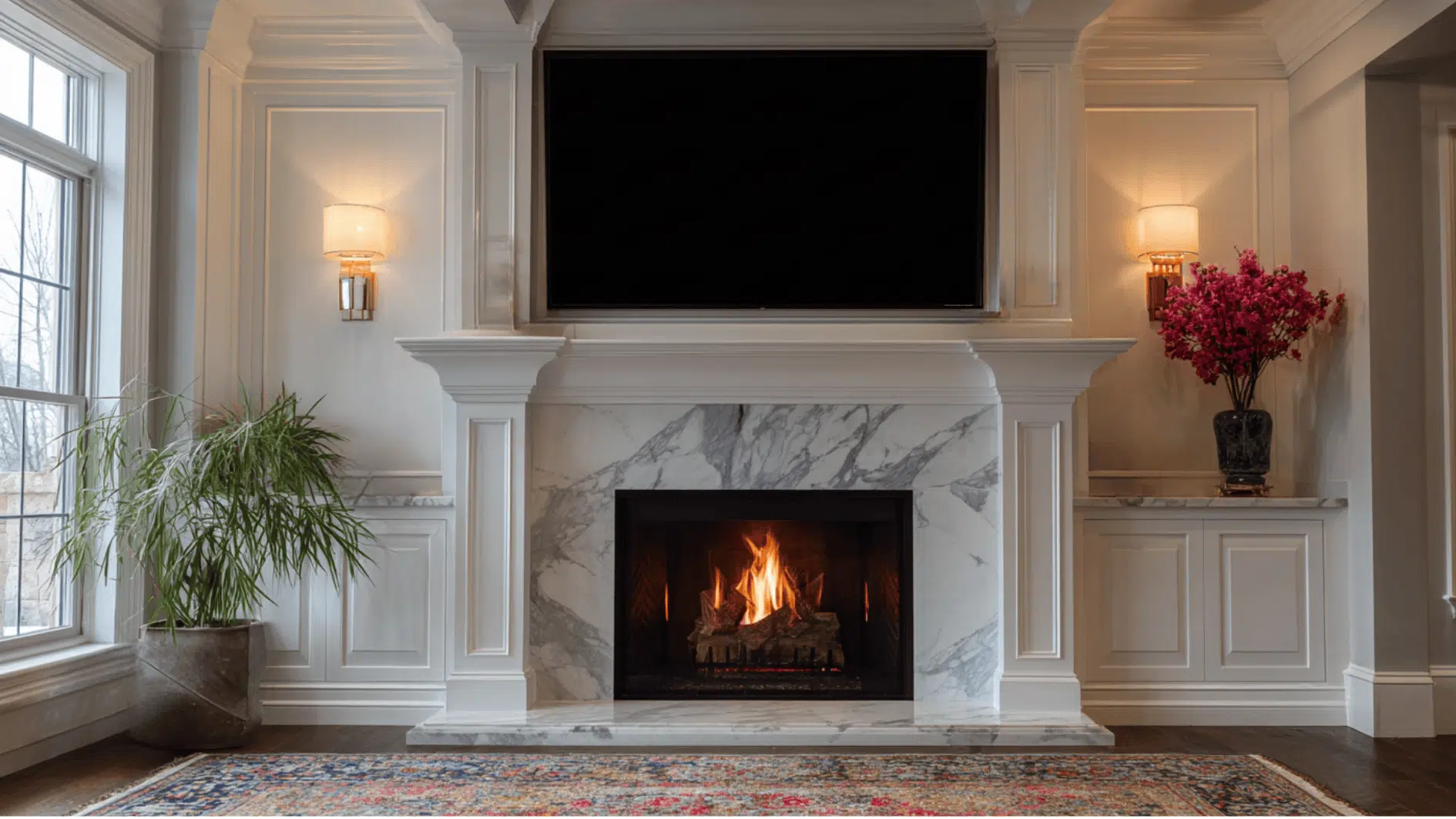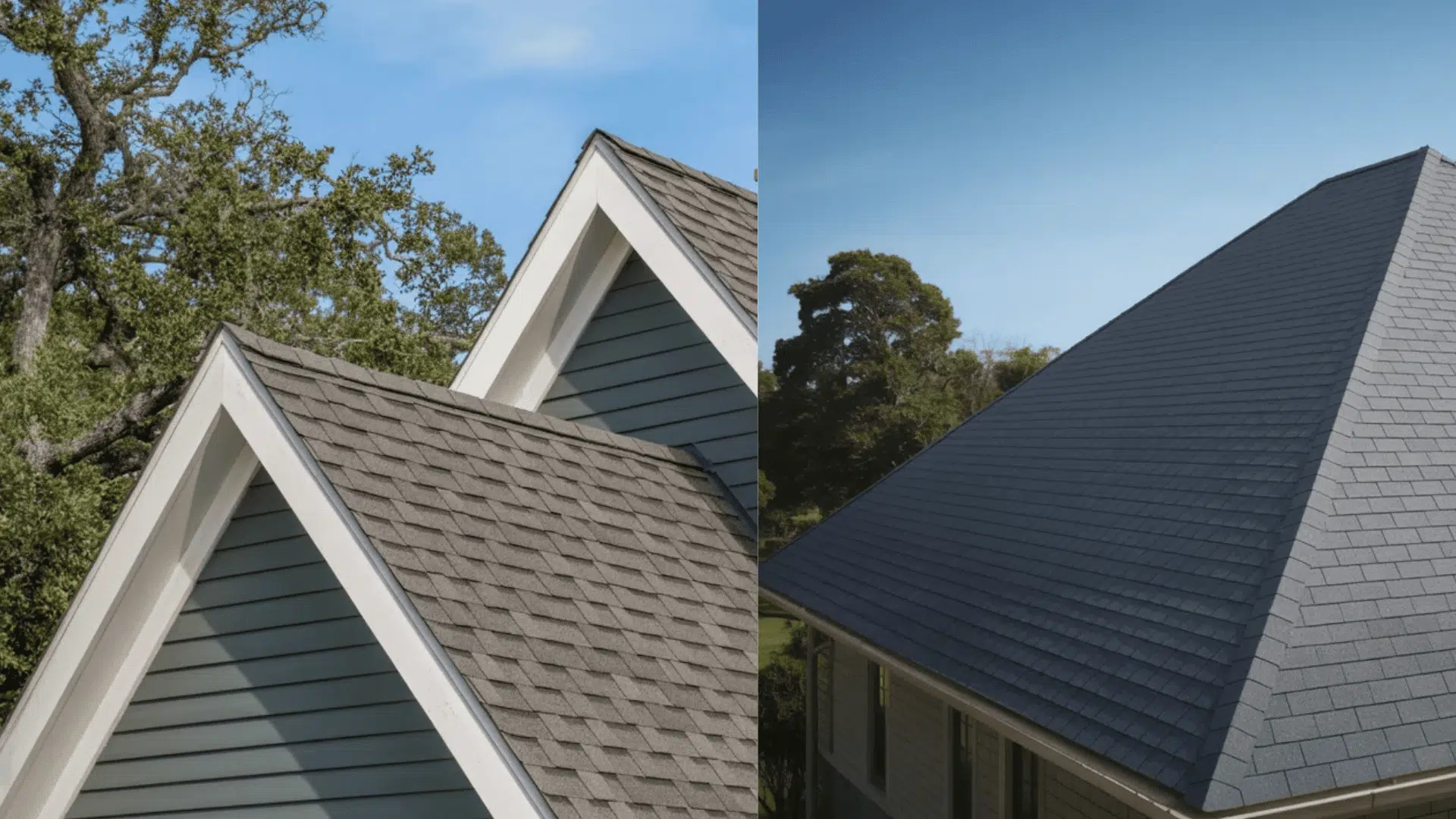Reasons why Painting the Interior Door is a Nice Idea
When you think about it, doors are something you see and interact with dozens of times every day.
Painting your interior doors offers benefits that go far beyond simple decoration. It’s one of the most cost-effective ways to refresh your home’s entire look and feel.
Here’s why it makes such good sense:
- Instant visual impact: A fresh door color catches the eye and creates immediate interest
- Defines room character: Different colors help establish each space’s unique personality
- Creates flow: Coordinated door colors tie your home’s design together beautifully
- Affordable upgrade: Much cheaper than replacing doors or major renovations
Interior Door Color Ideas for Your Home
These colors have proven themselves time and again in real homes. Each one brings something special to the table, whether it’s warmth or pure visual impact.
1. Mocha Mousse
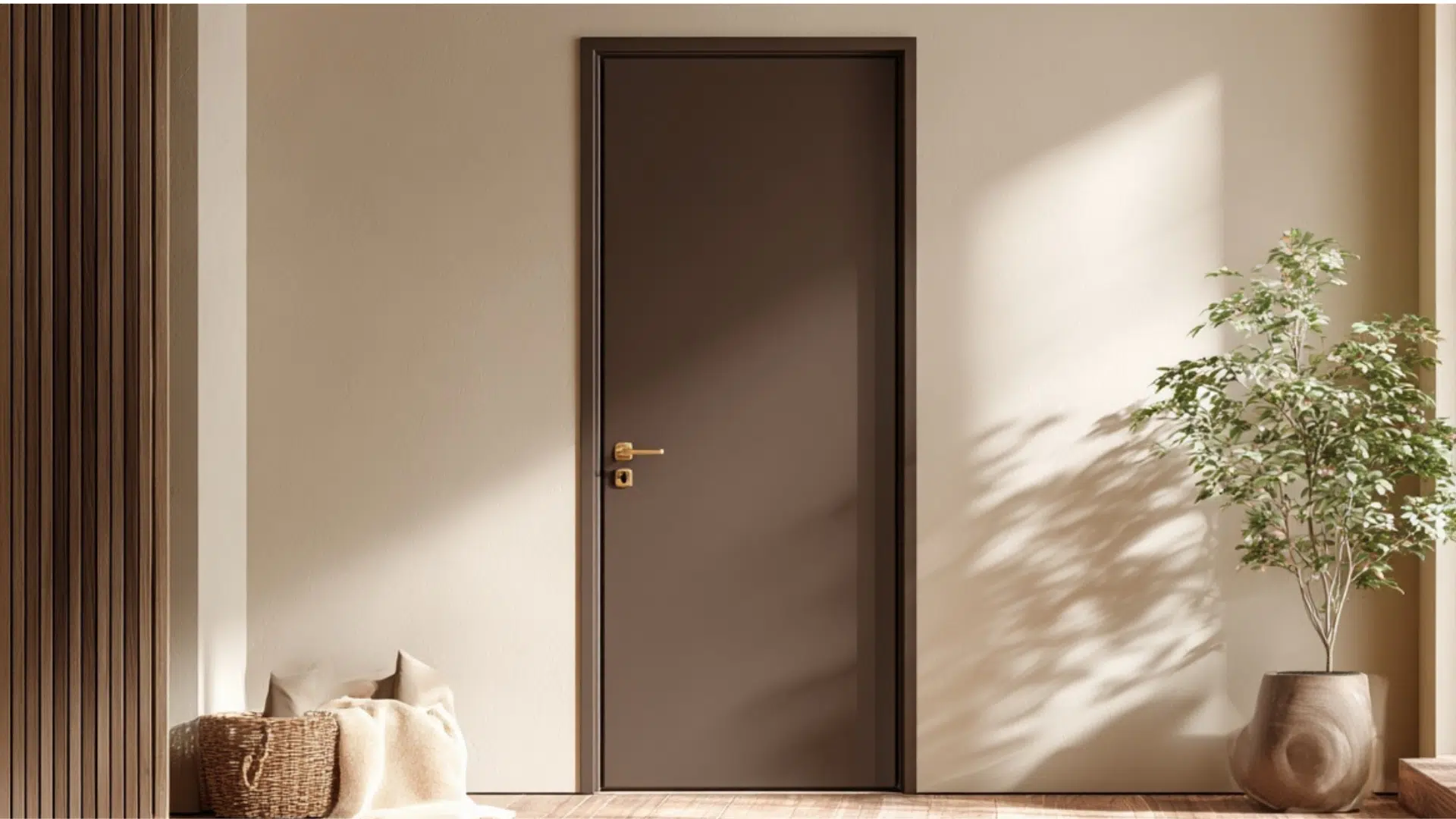
This rich, coffee-inspired brown adds warmth without being too dark. It pairs beautifully with cream walls and creates a cozy, inviting feel.
Mocha mousse works especially well in living rooms and bedrooms where you want comfort. The color has enough depth to make a statement but stays neutral enough to work with most decor styles.
2. Sage Green
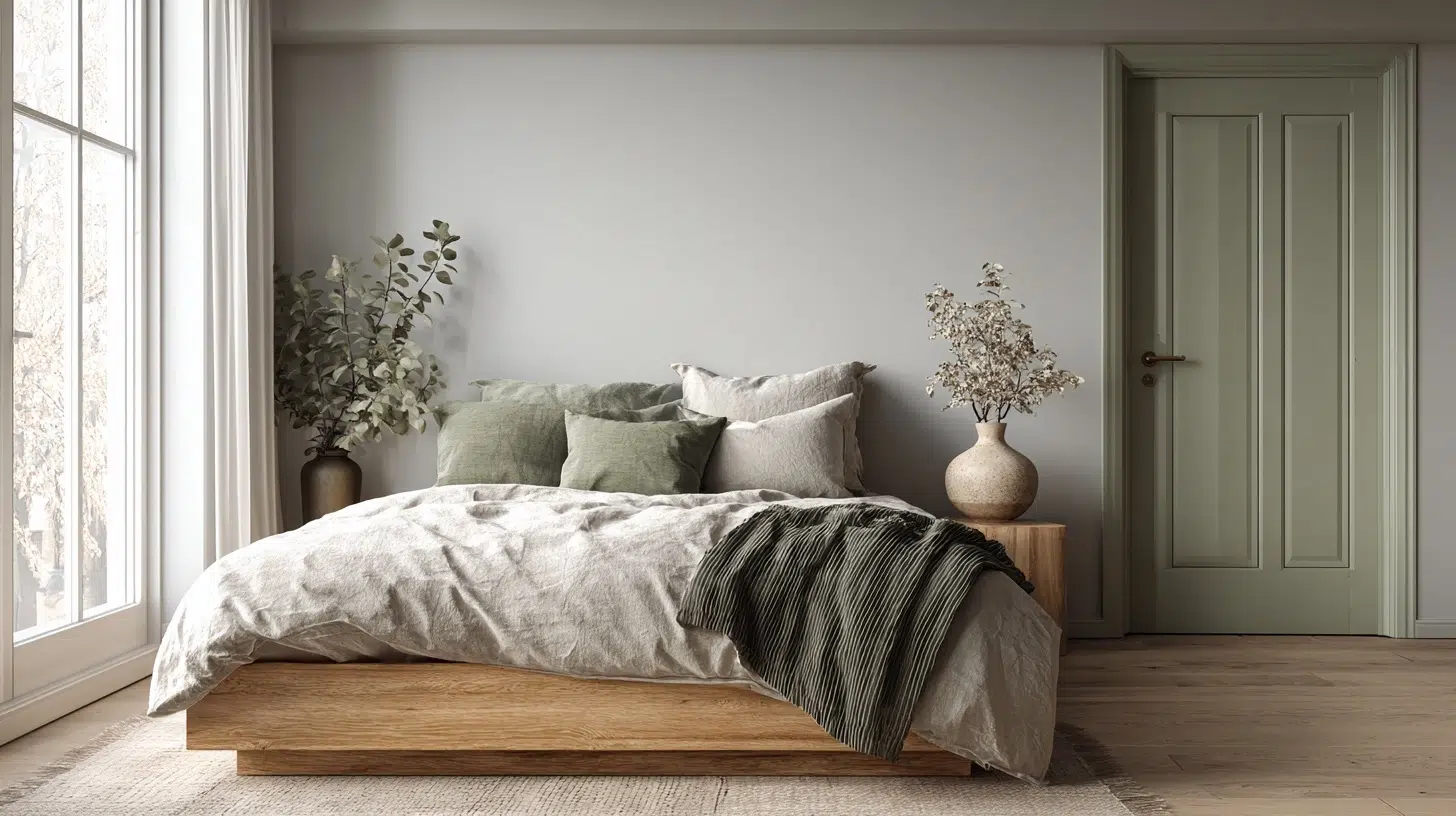
Sage green brings nature indoors with its calming, earthy tone. This color works wonders in bathrooms and bedrooms where relaxation is key.
It pairs well with whites, creams, and natural wood tones. Sage green has this wonderful ability to make spaces feel fresh and serene.
3. Navy Blue
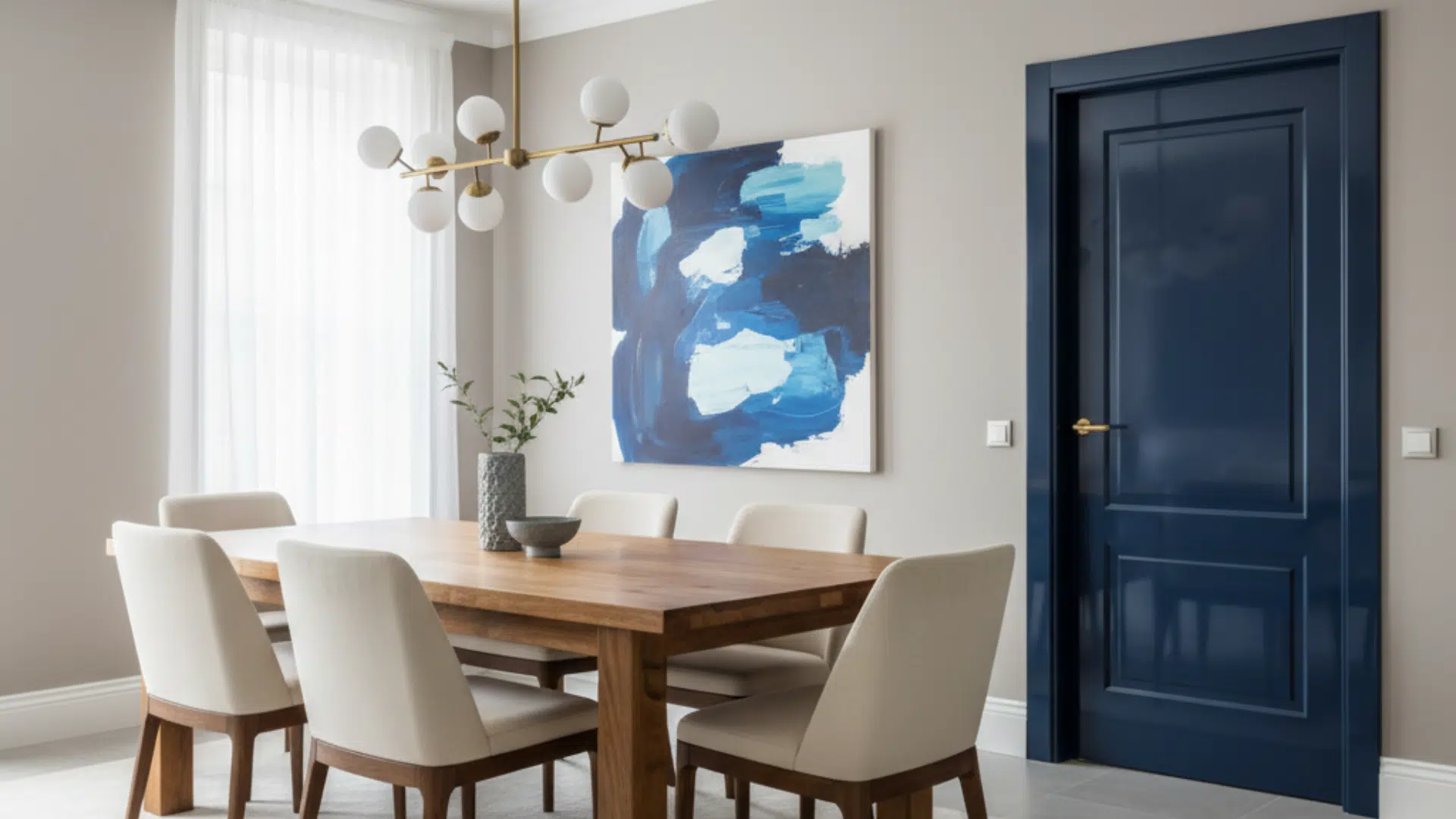
Navy blue is the cousin of basic blue.
This color works beautifully in dining rooms, studies, and hallways where you want to create impact.
Navy blue pairs perfectly with brass hardware and white trim. It’s classic enough to never go out of style yet bold enough to make your doors a focal point throughout your home.
4. Classic Black
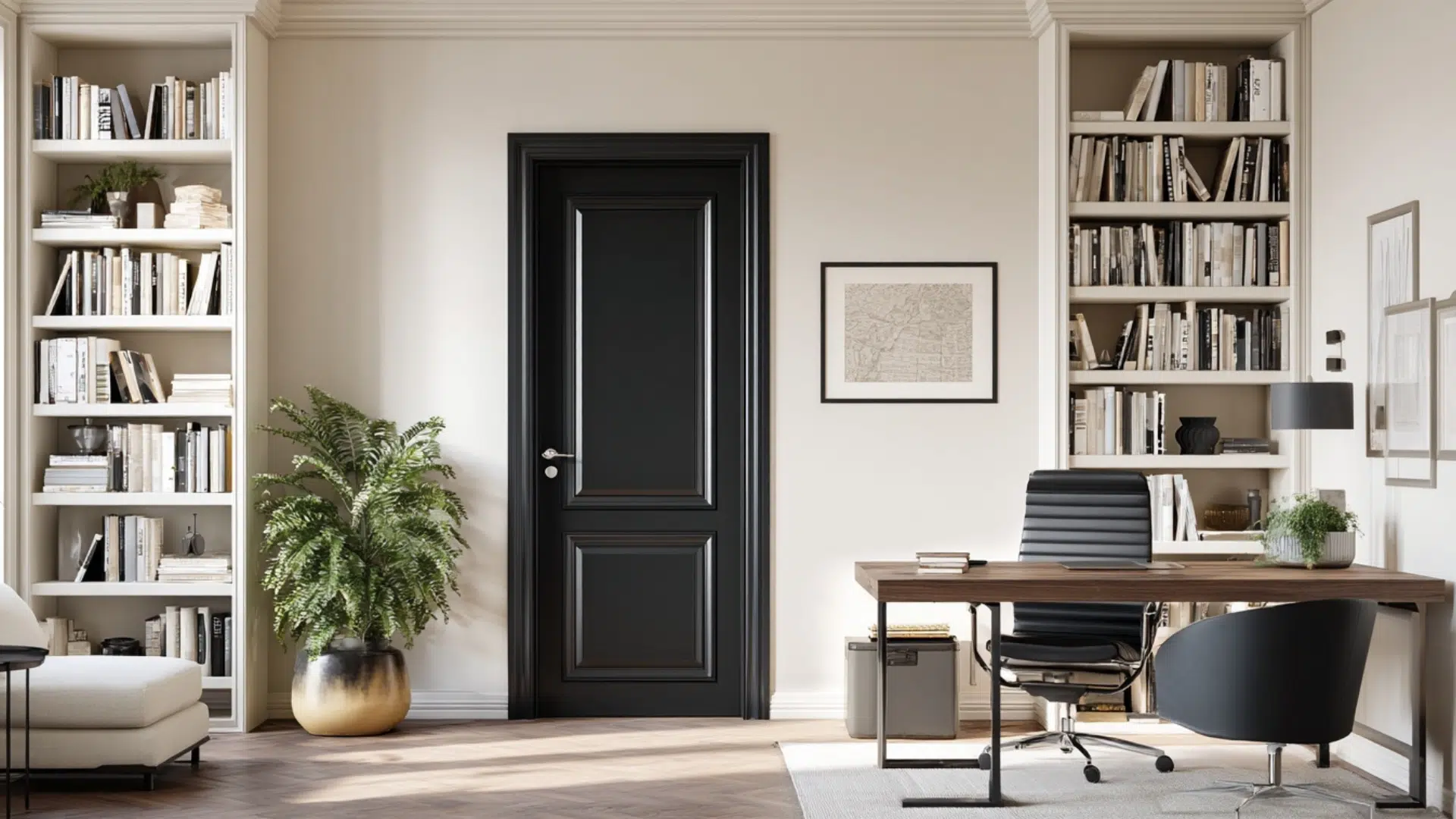
Black doors create instant drama and make every other color in the room pop. They work especially well with light walls and bright trim.
This is one of the interior door color ideas that makes rooms feel more defined.
Black doors also hide fingerprints and wear better than lighter colors, making them practical for busy households.
5. Warm Taupe
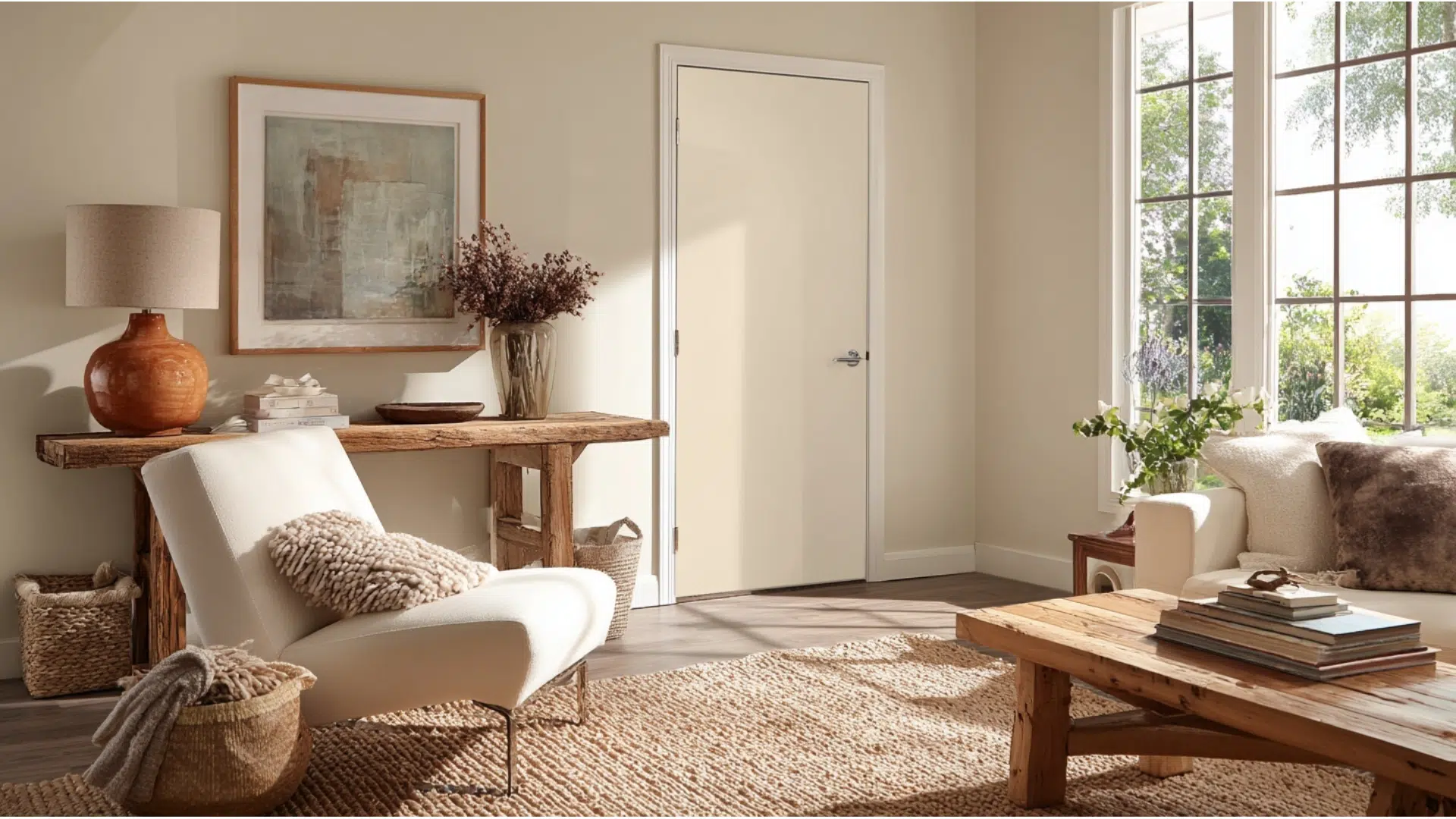
Warm taupe is like a hug in color form. It’s neutral but not boring, adding a subtle touch to any room. This color works wonderfully with both warm and cool tones throughout your home.
Warm taupe creates a cohesive flow between rooms while still allowing each space to have personality.
It’s perfect for those who want color without committing to anything too bold or trendy for their interior doors.
6. Anthracite Grey
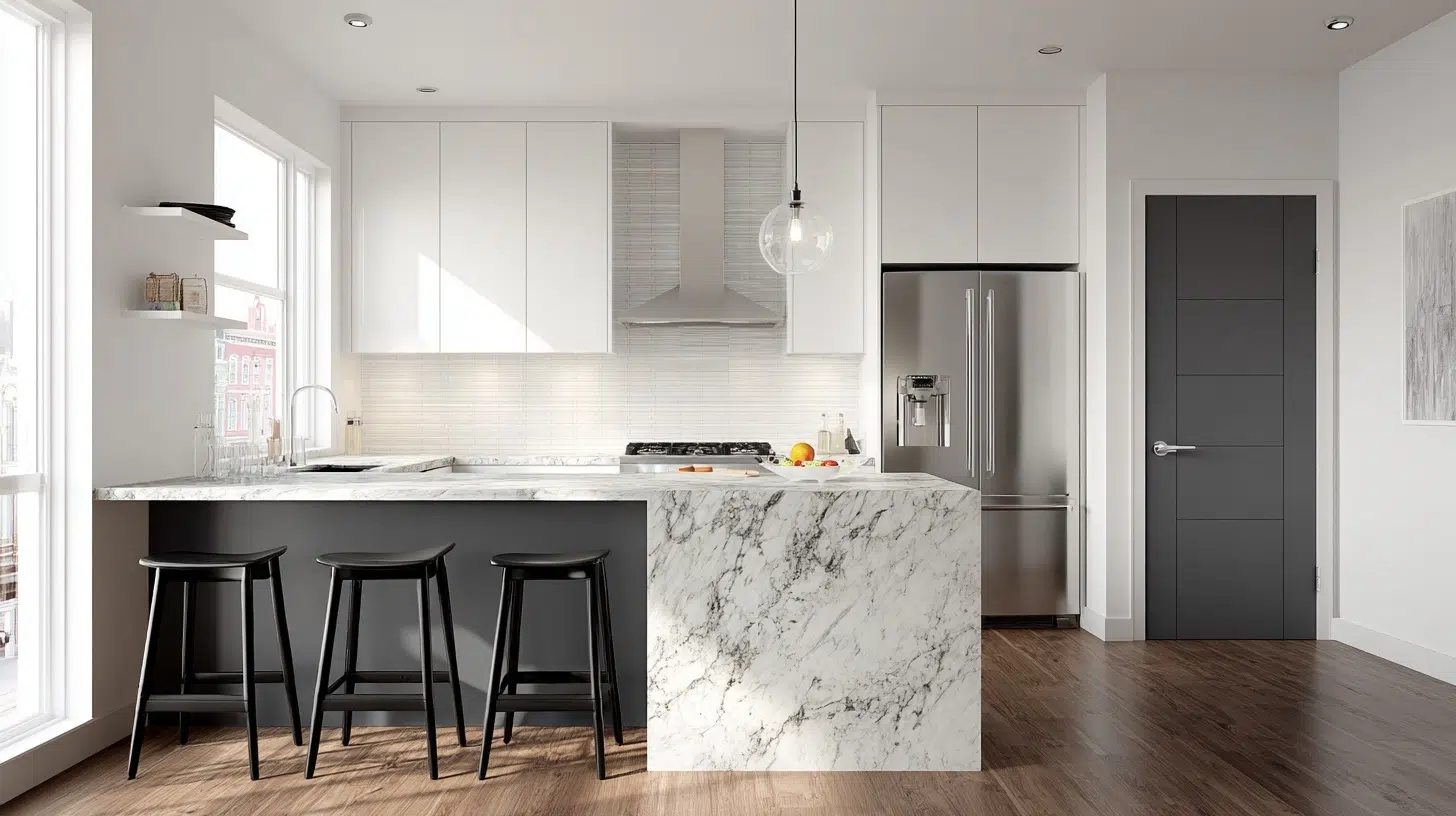
This deep grey works beautifully in contemporary homes and adds visual weight to doorways.
It pairs well with white walls, metallic accents, and bold artwork. Anthracite grey is neutral enough to work with any color scheme but interesting enough to feel intentional.
7. Terracotta
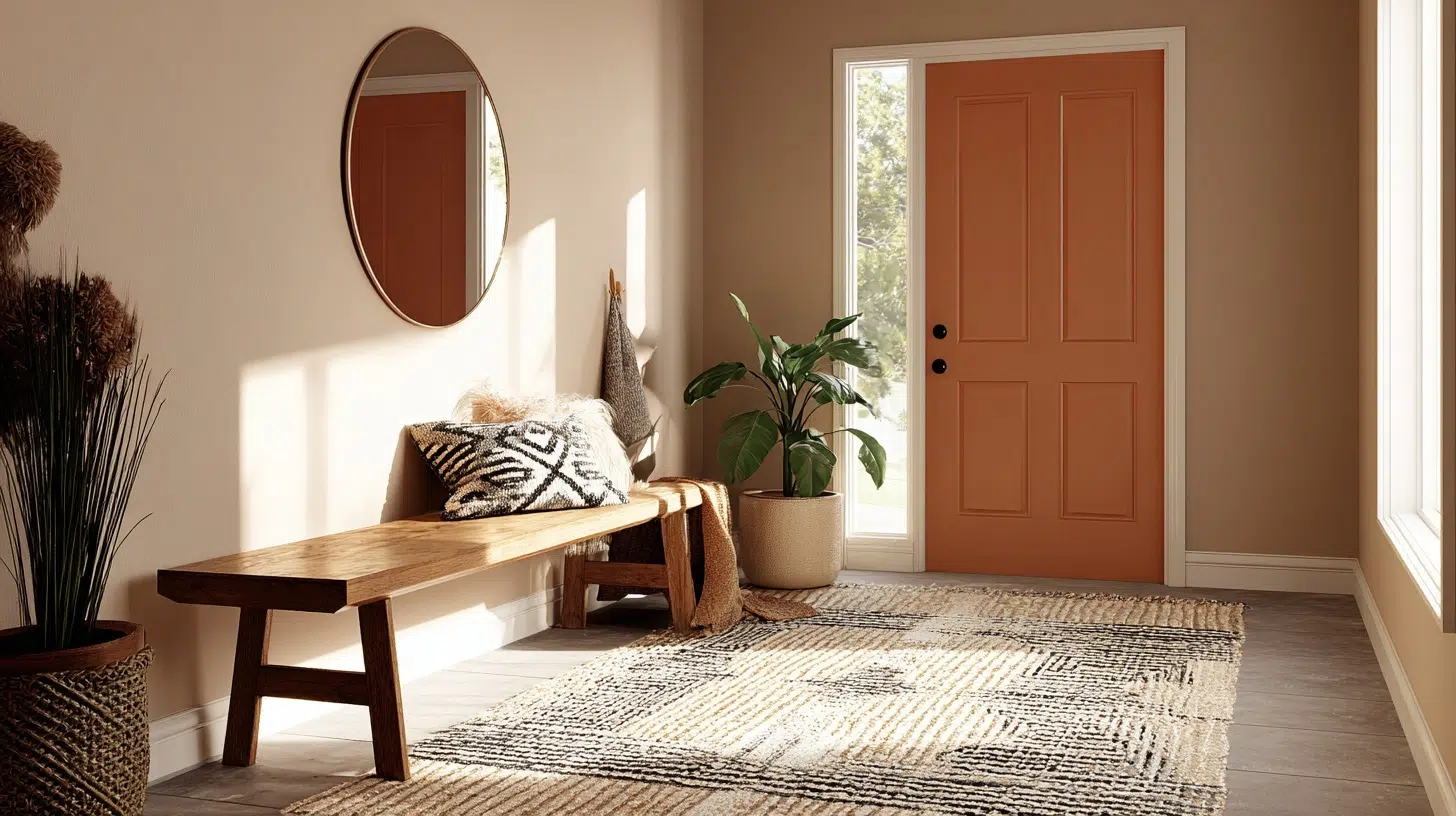
Terracotta brings warmth and earthiness that feels on-trend. This color works beautifully in kitchens, dining rooms, and entryways where you want welcoming energy.
It pairs wonderfully with cream, sage green, and deep blues. The color has this wonderful ability to make spaces feel cozy and inviting immediately.
8. Forest Green
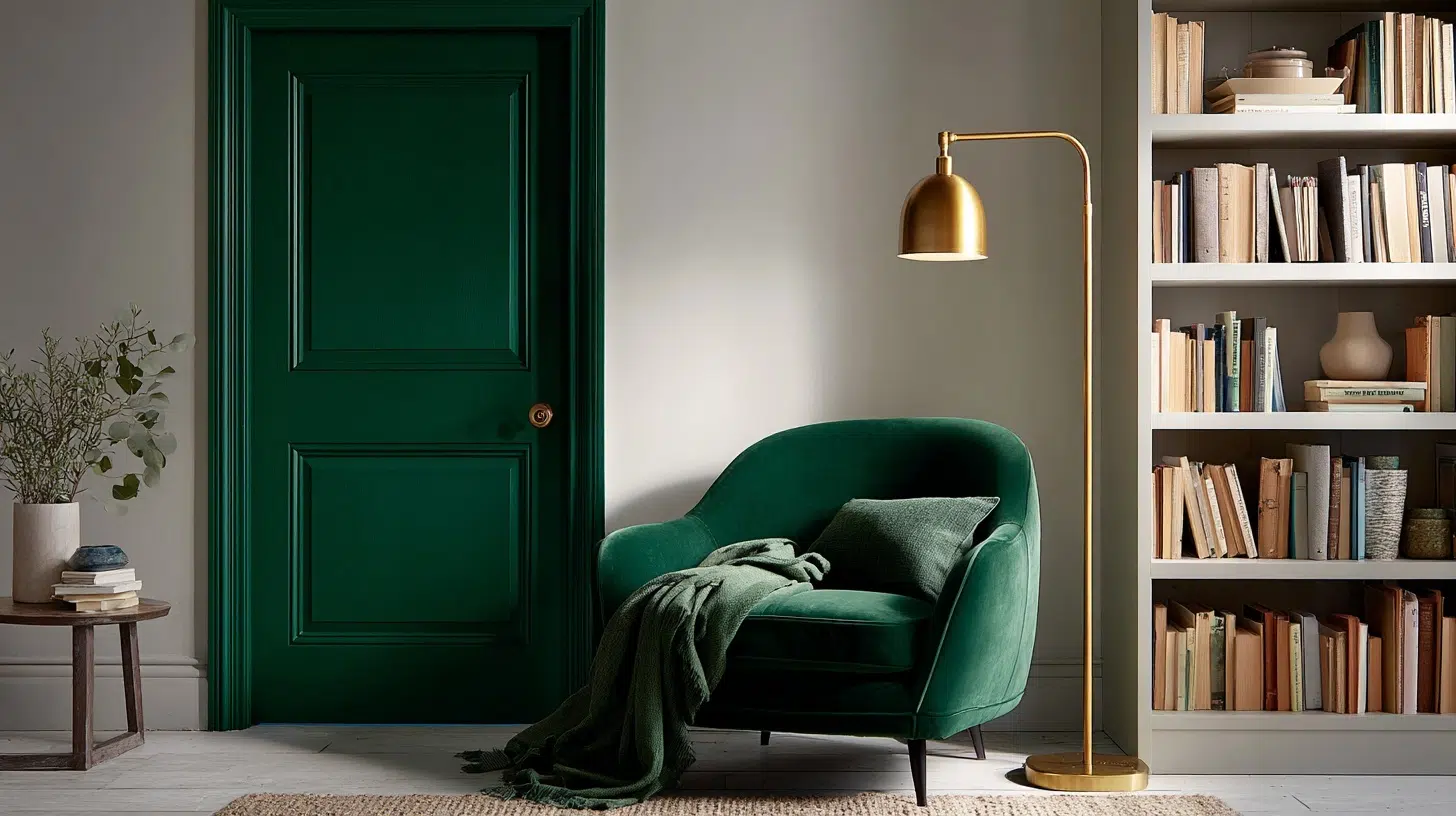
Forest green adds richness and creates a connection to nature indoors. This color works particularly well in studies, libraries, and bedrooms where you want tranquility.
This is one of the interior door color ideas that pairs beautifully with warm wood tones and brass fixtures. The color creates a sense of calm and grounding that many homeowners find appealing.
9. Burgundy
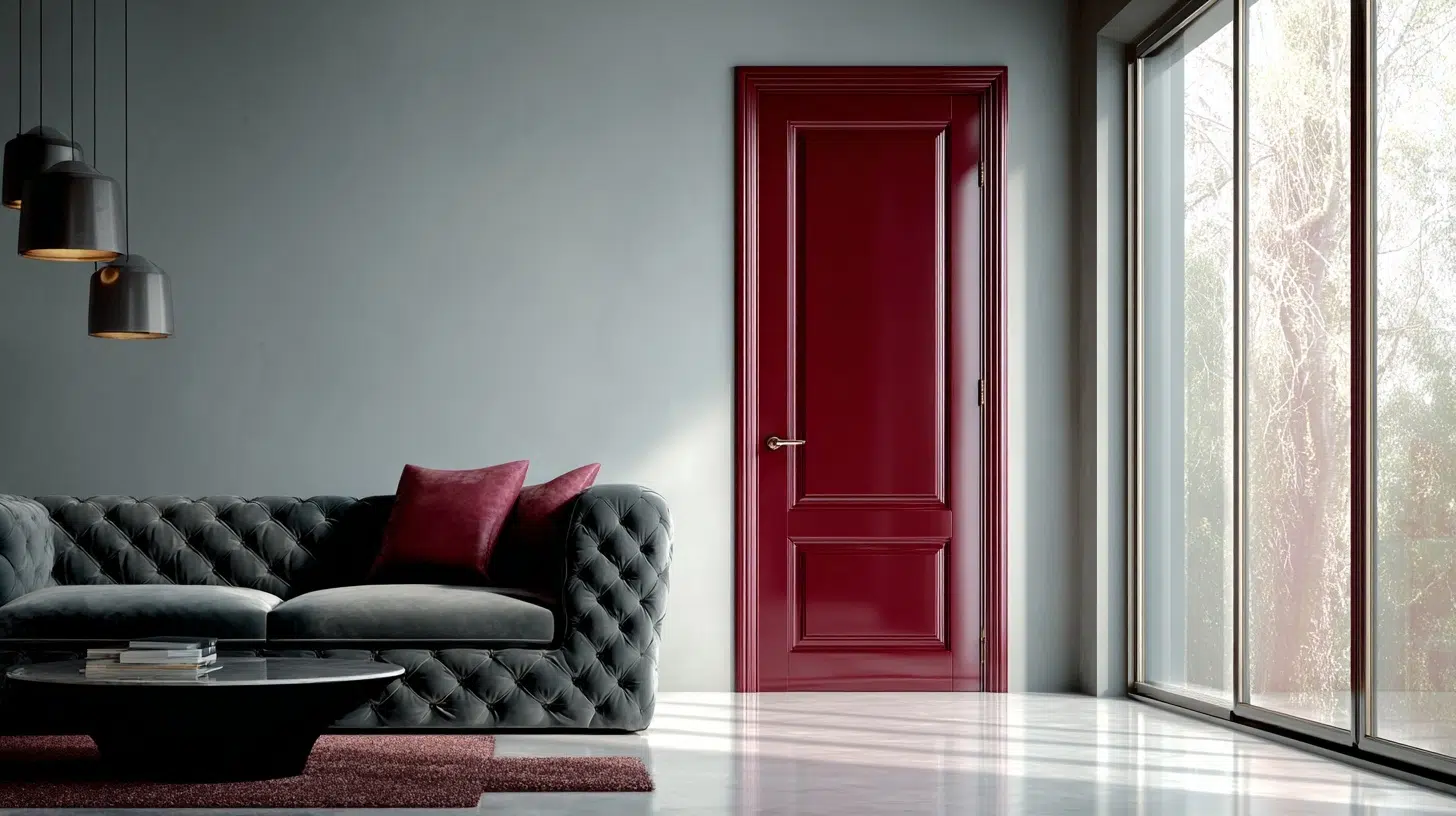
Burgundy brings luxury and warmth to any space it touches. This rich color works beautifully in dining rooms, master bedrooms, and formal living areas.
The color is bold enough to make a statement but classic enough to work with traditional design elements throughout your home.
10. Soft Blush Pink
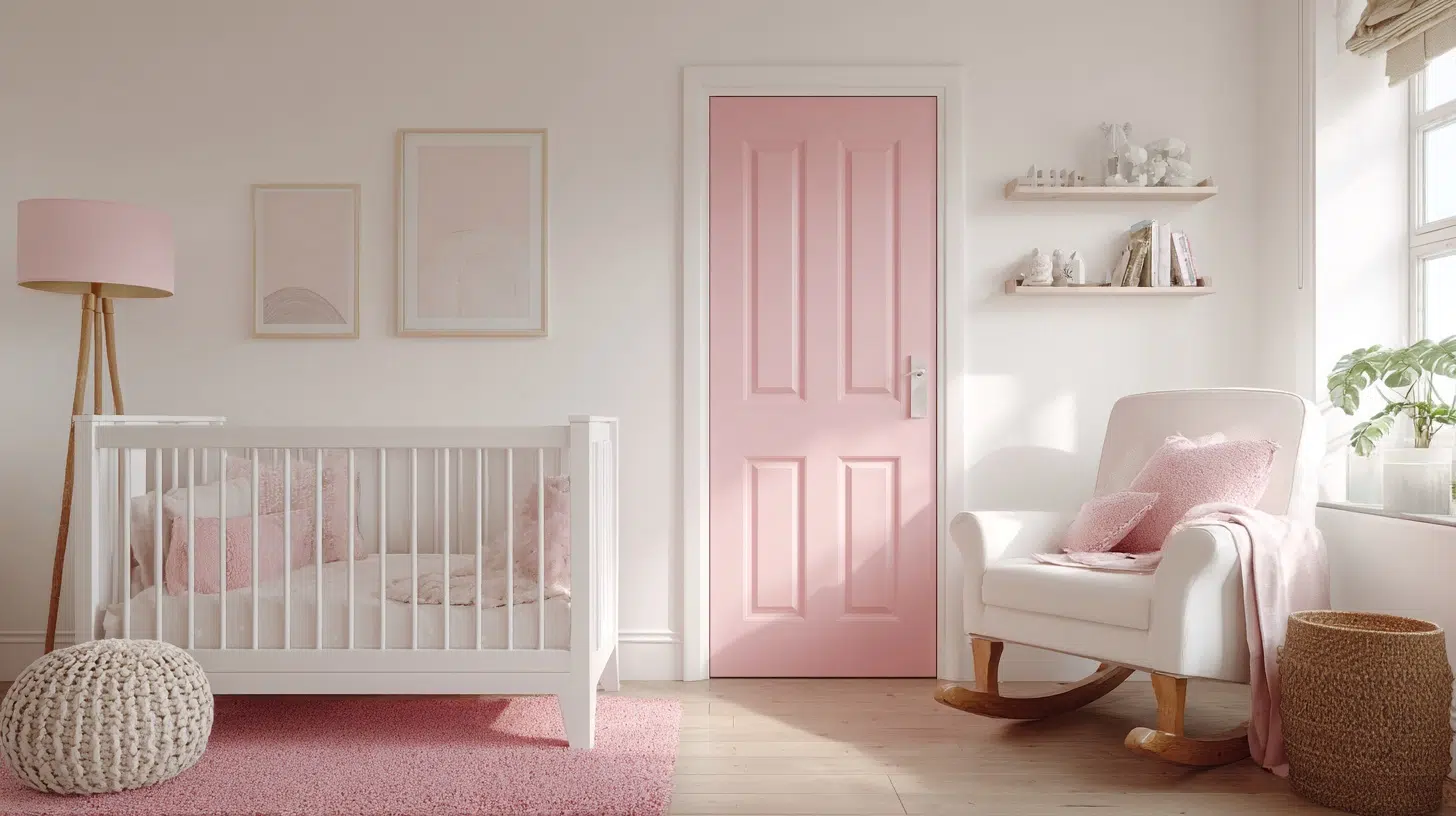
Soft blush pink adds gentle warmth without being overly feminine.
It pairs beautifully with whites, greys, and natural wood tones. Soft blush pink creates a calming atmosphere and makes spaces feel larger and brighter.
11. Muted Beige
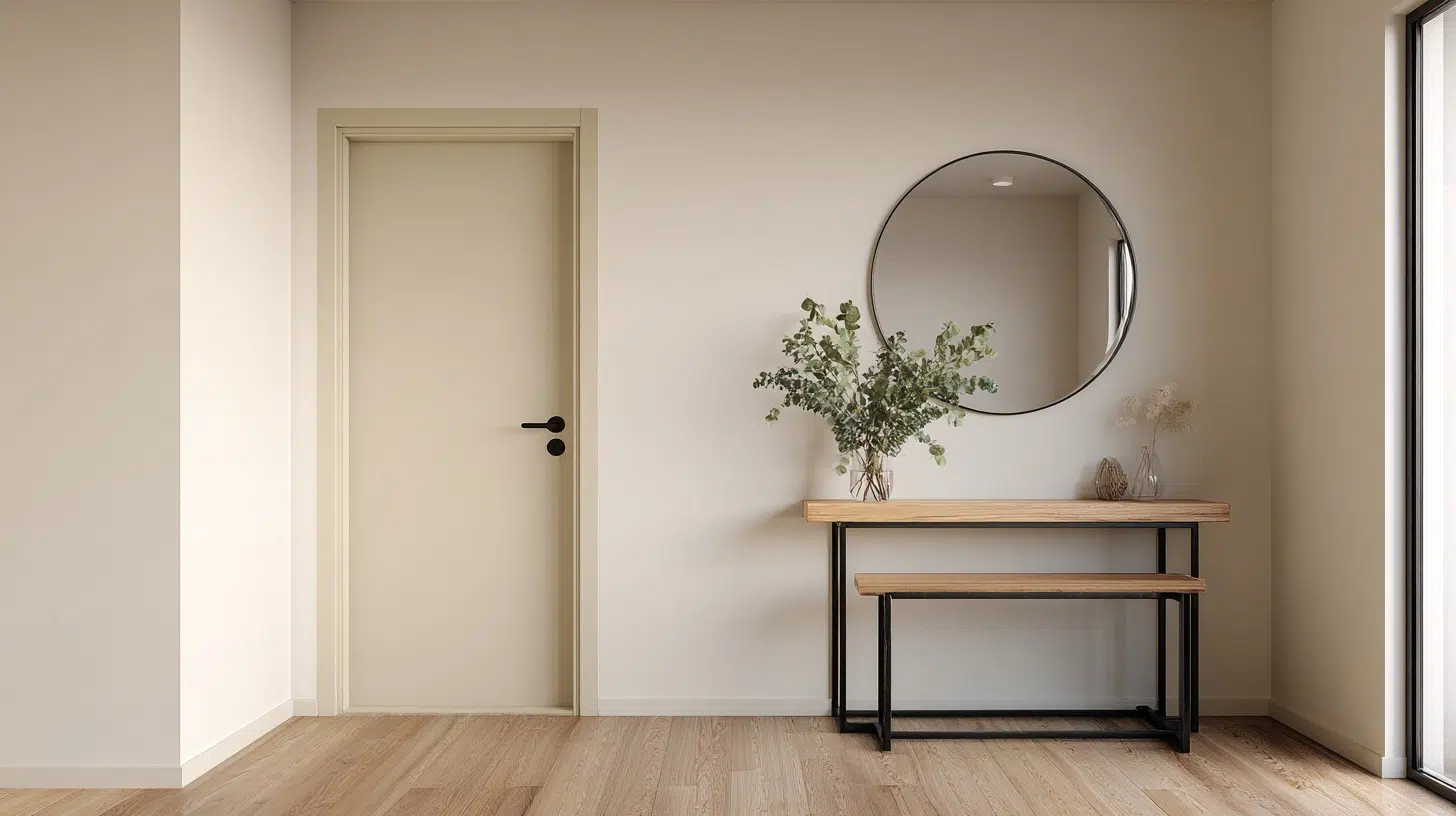
Muted beige is the ultimate neutral that works with absolutely everything.
This is one of the interior door color ideas that pairs well with any color scheme and works in every room. The color is classic, practical, and perfect for those who prefer understated beauty in their interior spaces.
12. Deep Ocean Blue
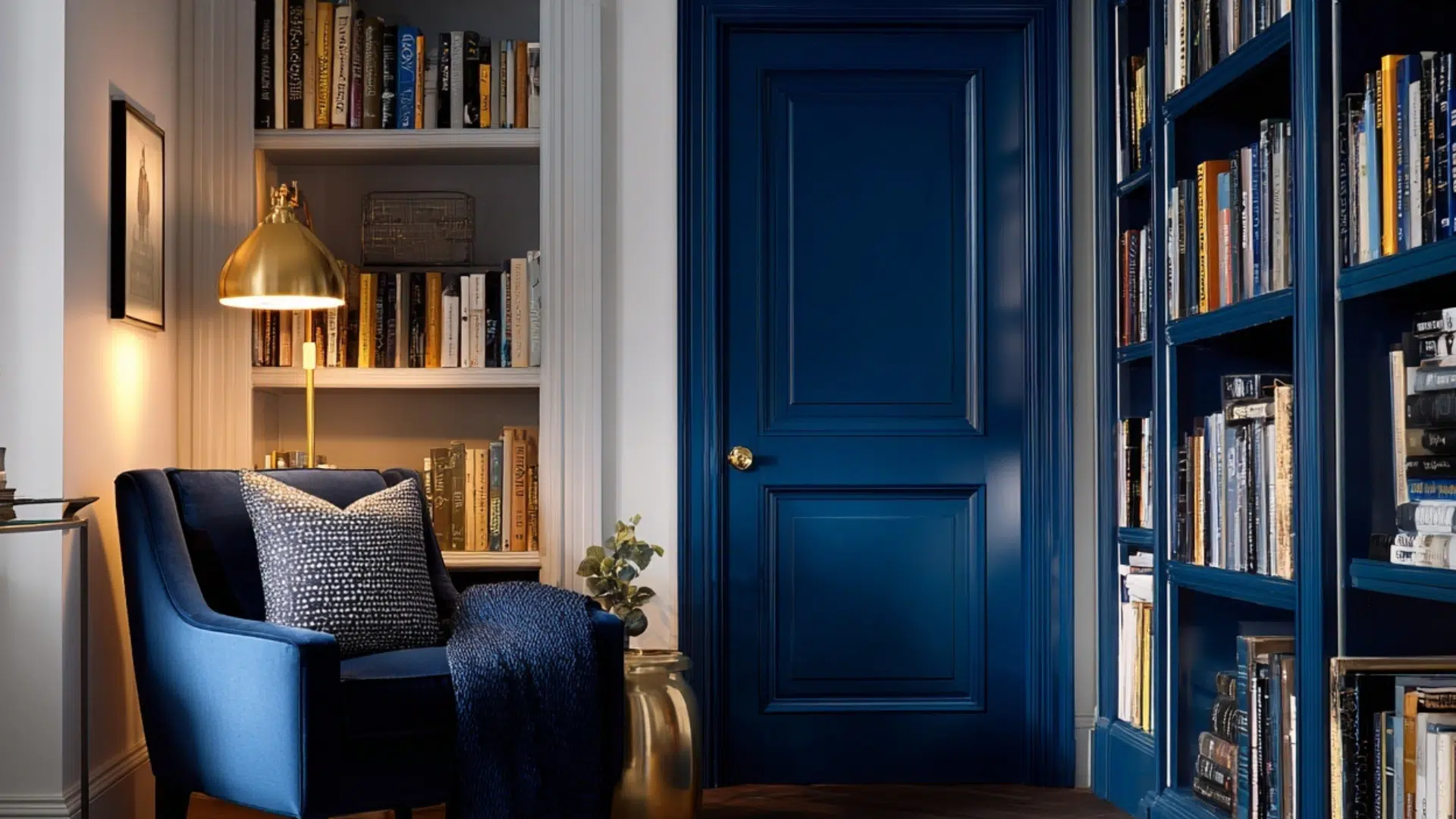
Deep ocean blue brings the calming essence of water into your home.
This color works beautifully in bathrooms, bedrooms, and coastal-themed spaces.
This is one of the interior door color ideas that pairs well with whites, creams, and sandy beiges. The color is bold enough to create interest but calming enough to use in relaxation spaces throughout your home.
13. Vibrant Yellow
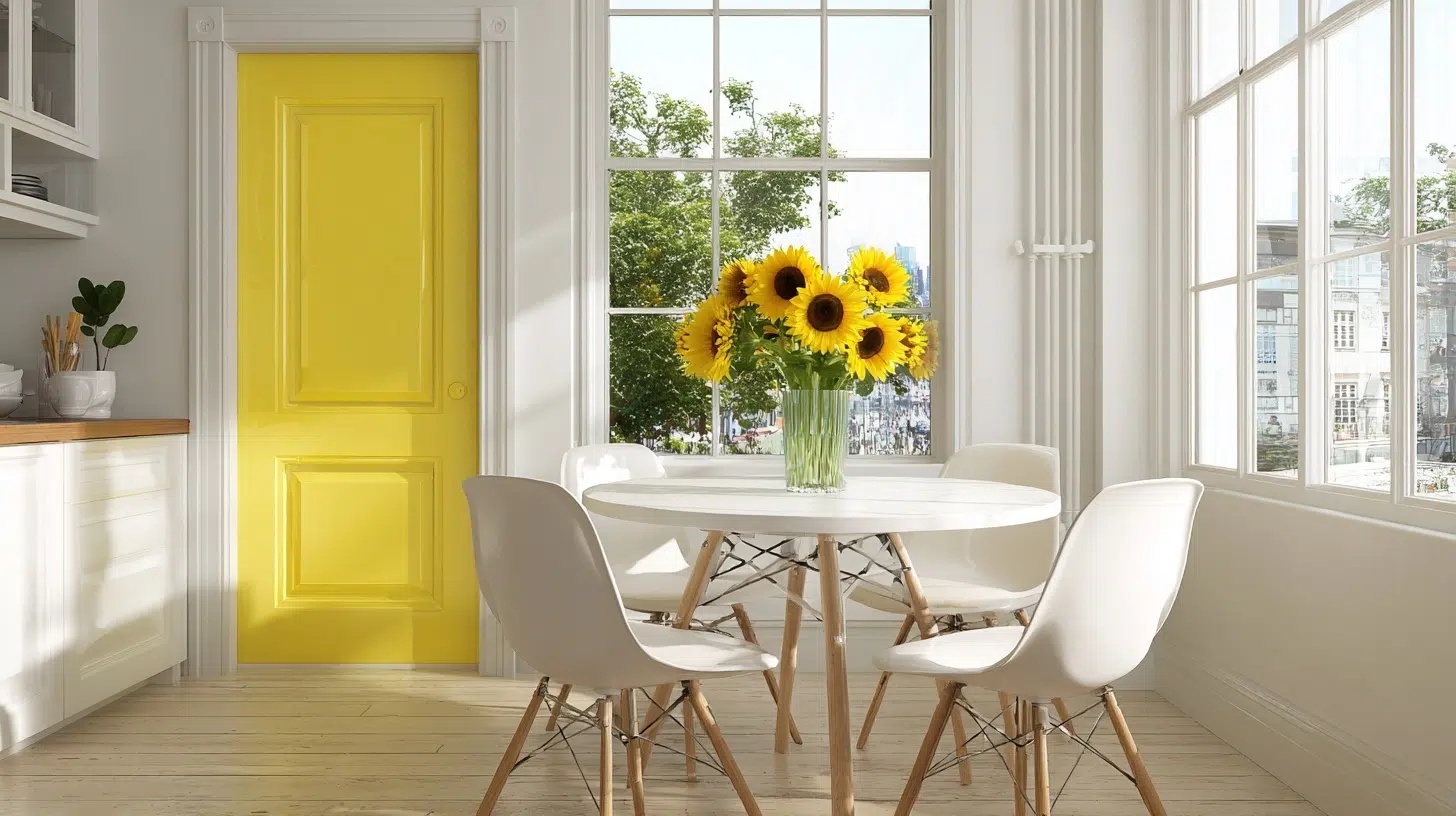
This yellow brings instant sunshine and energy to any space.
It pairs beautifully with white trim and neutral walls. The color is perfect for those who want to add personality and joy to their home’s interior design.
14. Charcoal
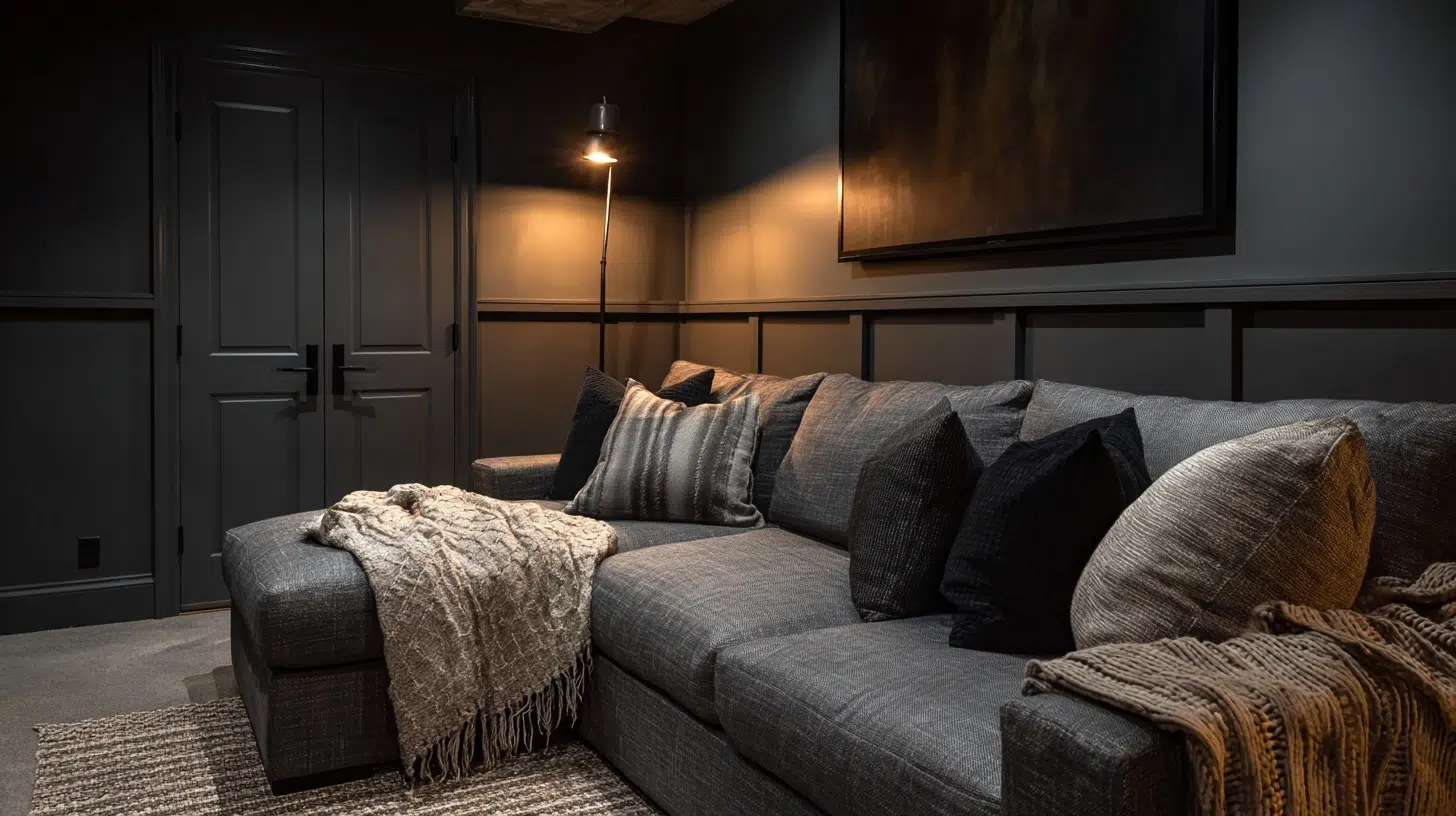
Charcoal works well in modern homes and adds visual weight to doorways. It pairs beautifully with white walls, metallic accents, and colorful artwork.
Charcoal is neutral enough to work anywhere but interesting enough to feel intentional. The color adds depth and sophistication while remaining versatile enough to work with changing decor trends over time.
15. Lilac Color
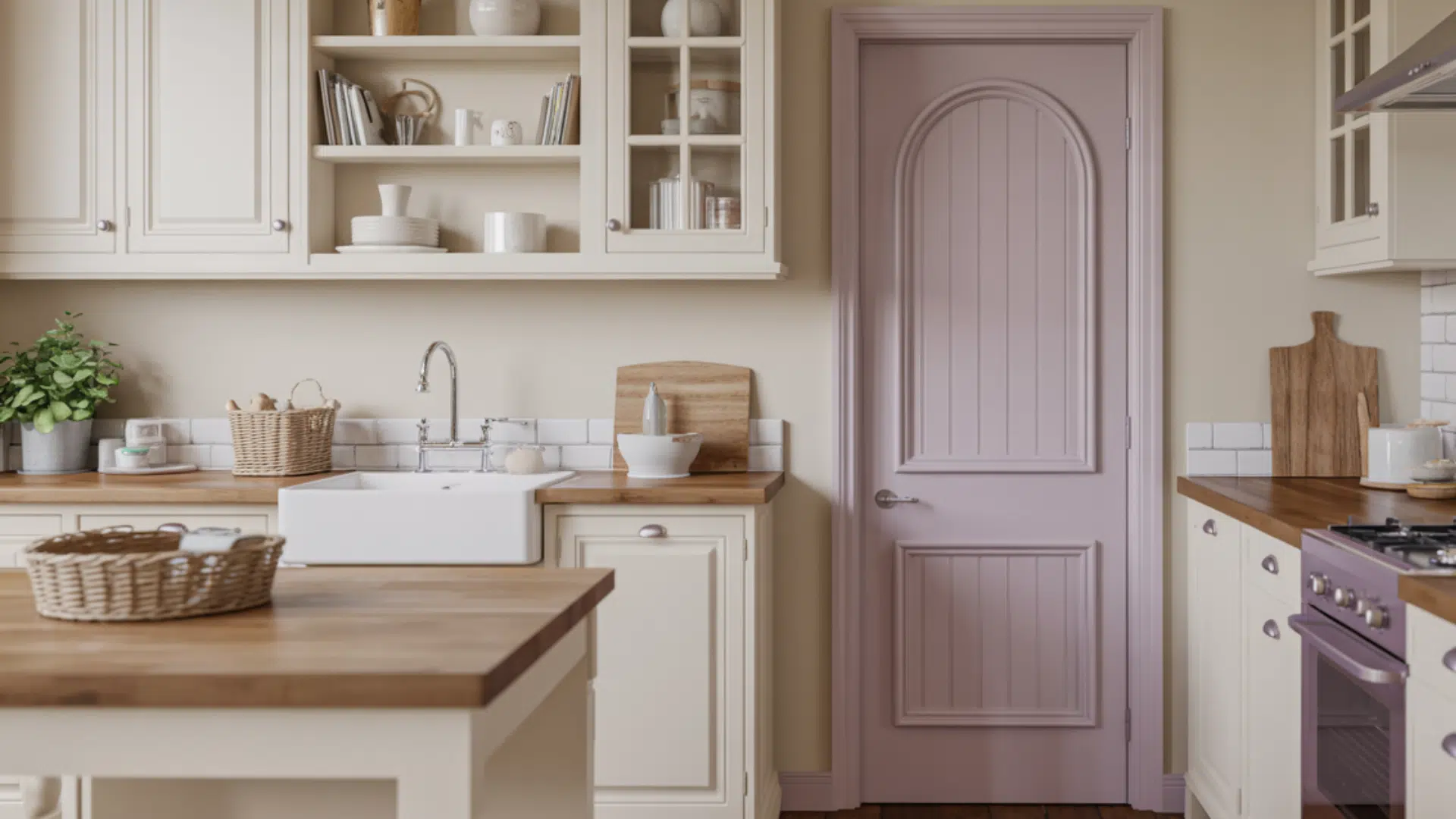
Lilac is an excellent interior door color for its calming charm. It adds a subtle pop of color, complementing neutral or pastel cottage interiors.
Lilac doors create a serene, inviting atmosphere, blending seamlessly with modern or rustic decor.
Do all Interior Doors Need to be the Same Color?
Not at all!
While matching doors creates a clean, uniform look, mixing colors can add personality and define different areas of your home.
We’ve seen beautiful homes where bedroom doors are soft pastels while main living areas feature bold, dark colors.
The key is creating intentional contrast rather than random choices. You might paint all upstairs doors one color and downstairs doors another. Or use the same color family but vary the shades, light blue in kids’ rooms, navy in the master bedroom.
Think about flow and function. Doors leading to private spaces can be different from those in common areas.
What matters most is that your choices feel purposeful and reflect your style.
Common Mistakes to Avoid When Choosing Door Colors
Picking the wrong door color can throw off your entire room’s balance.
The following are the most common pitfalls to watch out for:
- Ignoring your lighting: Colors look completely different under warm vs. cool light bulbs
- Forgetting about trim: Your door color should work with the existing window and baseboard trim
- Going too trendy: Super bold colors might feel dated in a few years
- Not testing first: Always paint a sample board and live with it for a week
- Skipping primer: This leads to uneven coverage and poor color payoff
- Choosing colors in isolation: Consider how the door looks with your furniture and wall colors
To Wrap Up
Before you make any final decisions, grab some sample paint pots and test them out.
Paint large swatches on poster board and move them around your space.
Look at them in morning light, afternoon sun, and evening lamp glow. You’ll be surprised how different the same color can look throughout the day.
If you try something and it doesn’t work out, you can always change it later. The most important thing is creating a home that feels like you.
